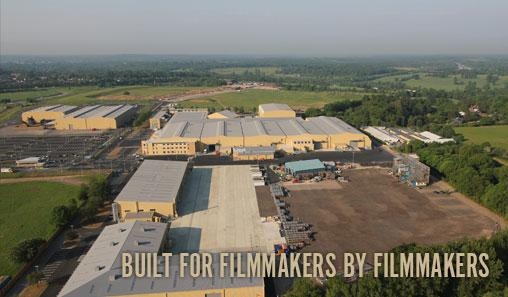The UK Film and TV Industry Is Booming and It's Largely Down to Two Women

This article also appears on the Huffington Post
The UK Film & TV industry is booming and it’s largely down to two women.
Women in Film and TV – Two of the most significant people in film and TV over the past 20 years have been women. You’re sure to have heard of one of them, but possibly not the other. One undertook a long, hard campaign to change the TV landscape, the other stood firm and proud in contract negotiations, which breathed life into a flagging industry.
Success has many authors, but I’m going to single out two people who made an enormous difference. They are by no means the only people who played significant roles, but the film and TV sector is in a far healthier state thanks to them.
JK Rowling transformed the British film industry when she insisted the Harry Potter films were made in the UK, creating thousands of jobs, leading the government to offer filmmakers tax breaks , leading Warner Brothers to invest in the UK, too.
In 1998, before Potter, film production spend in the UK was valued at only £398m. When JK Rowling insisted that her books be filmed in the UK, Warner Brothers set up camp in Leavesden Studios (an old 100-acre Rolls Royce factory near Watford, Herts). This transformed the industry and reminded the US studios that we had world-class technicians and facilities.
After a few years of the Potter films driving the film industry, the Government launched film tax credits in 2007, giving incentives to overseas producers to come to the UK. Production spend rose from just under £400m in 1998 to just over £1.1 billion by 2011, with employment also doubling in this time period. At the end of the Harry Potter films, Warner Brothers bought that old Rolls Royce factory and invested £100m to turn it into a world-class film studio. The Tom Cruise movie, Edge of Tomorrow was the first film made at WBSL (Warner Brother Studios Leavesden).
You might not have heard of Eileen Gallagher (no relation), but she led a campaign to change the way broadcasters and independent production companies worked.
In 2002/2003, the Producers’ Alliance for Cinema and Televison (PACT) lobbied the government aggressively to redress the imbalance between broadcasters and independent production companies. Eileen Gallagher, chair of PACT at the time, successfully lobbied the then Culture Secretary Tessa Jowell into making delicate yet very significant policy changes to the 2003 Communications Bill. It was a hard fought, long-sustained and quite brilliant campaign that has since reaped huge rewards.
What used to happen was this; broadcasters such as the BBC would either make shows themselves or commission an independent production company to make them. Like most commissions, the ‘indie’ company would work out the budget to make the show and add a mark-up, say, 10 per cent of the budget. This 10 per cent would then just about keep the company afloat when they didn’t have a commission. The broadcaster would keep all the rights themselves, they paid for it: the ‘indie’ waved goodbye to all ownership.
This led to many production companies going under, struggling between commissions and with cash-flow problems. The 2003 Bill changed the terms of the relationship, meaning independents could retain the intellectual property after an agreed window of broadcast. They could then turn to the worldwide markets and sell proven content and programme ideas to eager overseas buyers.
This little change of policy gave birth to the ‘Super-Indies’, as we know them now. It was no longer feast or famine at the mercy of the broadcaster, but a steady and healthy growth of income based on IP, ideas and good content – rewarding creativity. Because the indie producer could now sell to a much bigger market, they had a more secure business. They now turn over hundreds of millions of pounds and have created thousands of jobs.
It was only when Tessa Jowell heard Eileen Gallagher speak in 2002 that she understood the problem and the solution presented by PACT. Gallagher and her team have transformed the TV industry.
The reason I’m writing about this now is because I recently spoke to a production manager (with BAFTA- and EMMY-winning drama on her CV), about returning from a career break while she had a baby. I resist using the word ‘maternity’ as there is none in this industry. She has struggled to find work as the long, unpredictable hours are completely incompatible with having children. She’s cast adrift looking for opportunities that pay reasonably and fit with childcare. She’s not the only person we’ve heard this from; it happens all the time and we’re losing talent, wisdom and experience.
Even if filming hours are not compatible with production roles, can large employers like the BBC, ITV, Channel 4 and Sky afford to dispense with the services of skilled, experienced individuals? What about the indie sector? Eileen Gallagher is now CEO at Shed Productions and they do offer Maternity and a route back into production to their staff, it’s not the same everywhere though.
We’ve got a booming film and TV industry thanks to these two incredible and inspiring female role models, yet we make it so hard for women to return to work after having a child.
Surely it is time for broadcaster and filmmakers to think again?
This article also appears on the Huffington Post
thecallsheet.co.uk has over 4000 members including Oscar, Bafta and Emmy award winning talent, all in a database of over 50,000 people, productions and companies.
We post jobs in Films and TV, are you a member? Find out more about thecallsheet here http://www.thecallsheet.co.uk/
